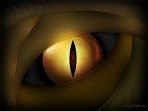Bush staying close to home at campaign's end
WASHINGTON – The unpopular President Bush is staying off the campaign trail in the race to succeed him.
The president is raising money. But for voters in the swing states that count — Florida and Ohio, for example — Bush is the invisible incumbent. With a mere 26 percent approval rating, Bush was expected to keep a low profile in John McCain's campaign. As it turns out, Bush has been a virtual no-show — except in Democratic television ads that regularly tie him to Republican candidates.
Since Bush endorsed McCain in the Rose Garden on March 5, the two have appeared in public only three times for a total of 12 minutes. That's in stark contrast to the scores of fundraisers and rallies Bush did before midterm elections in 2002 and 2006.
As McCain and Democrat Barack Obama make their final pitches to voters this weekend, Bush will be spending time at the Camp David presidential retreat. He has no public events on Monday or Tuesday, not even an Election Day photo op.
He cast an absentee ballot for McCain last week; the White House sent it down to Texas to be counted.
On election night, Bush is expected to watch the returns on television at the White House with friends and celebrate first lady Laura Bush's 62nd birthday.
The White House says Bush has been trying to stay out of the public spotlight — that he's busy with the financial crisis, two wars and the upcoming transition to a new administration. The economy and recent hurricanes on the Gulf Coast prompted Bush to cancel appearances at fundraisers.
In early September after Hurricane Gustav, Bush scrapped his planned opening-night speech at the Republican National Convention in St. Paul, Minn. That worked out well for McCain who has tried hard to distance himself from the president.
Asked on Friday if Bush feels unloved by his party, White House deputy press secretary Tony Fratto said:
"I haven't had this kind of conversation with him, but I don't believe he takes it personally. He's been in politics his entire life — he's been around it his entire life — and he knows that it's a rough-and-tumble business."
White House aides say the administration and the McCain camp jointly decided months ago that the Arizona senator would do his own politicking and that the president's time was best spent helping the Republican Party and House and Senate candidates. According to GOP officials, Bush has appeared at 84 events during the 2008 election cycle, raising more than $147 million.
Congressional Republicans, however, rarely — if ever — mention Bush's name on the stump. House and Senate Democrats regularly feature him in spots accusing Republican candidates of being in lockstep with Bush.
Some close to the president are out on the trail. Vice President Dick Cheney campaigned in Wyoming on Saturday for three Republicans running for the House and Senate, and Mrs. Bush was expected to be in Kentucky on election eve at a get-out-the-vote rally.
In the three weeks leading up to Election Day, Bush has been at only three political events — all closed to the public. He helped raise $500,000 for Republicans at a fundraiser in Michigan. He attended a $1 million event in Washington for Senate Republicans. He also stopped last week at GOP congressional campaign headquarters in Washington to buck up political workers scrambling to prevent Republican House and Senate losses.
There were early hints that McCain and Bush would not be chummy on the trail.
At Bush's 10-minute endorsement of McCain in March, the president told reporters he would campaign for or against McCain — whatever was best for the GOP. "If he wants me to show up, I will. If he wants me to say `You know, I'm not for him,' I will," Bush said.
McCain was noncommittal, saying the two would campaign together "in keeping with the president's heavy schedule."
After a fundraiser in Arizona a few months later, the two smiled and shook hands at an airport. The encounter on the tarmac lasted less than a minute.
The last time they were seen in public was on Sept. 25, when Bush, McCain and Obama met at the White House with congressional leaders to talk about the economic crisis. McCain, sitting a few chairs down from Bush at a shiny long table in the West Wing, smiled widely and nodded during the one-minute photo-op, but said nothing publicly.
In 2006 — the year the Republicans lost control of the House and Senate — Bush was on the campaign trail giving upbeat talks about how the GOP was "roaring" into Election Day. Four years earlier, Bush campaigned nonstop in the run-up to the election from South Dakota to Appalachia, Florida to central Illinois.
Democratic presidential hopeful Al Gore kept President Clinton, scarred by a sex scandal and impeachment, at arm's length too.
But Clinton not only raised money as Bush has done. He also campaigned — though not with Gore — right up through Election Day, speaking at get-out-the-vote rallies coast to coast, making calls to radio stations and doing interviews.
His days in office winding down, Bush had only to look out the window this week for a reminder.
Workers began building Inauguration Day grandstands along Pennsylvania Avenue.
___
Associated Press writer Julie Hirschfeld Davis in Washington contributed to this report.
Barack Obama, writes Washingtonpost.com’s Chris Cillizza.

No hay comentarios:
Publicar un comentario